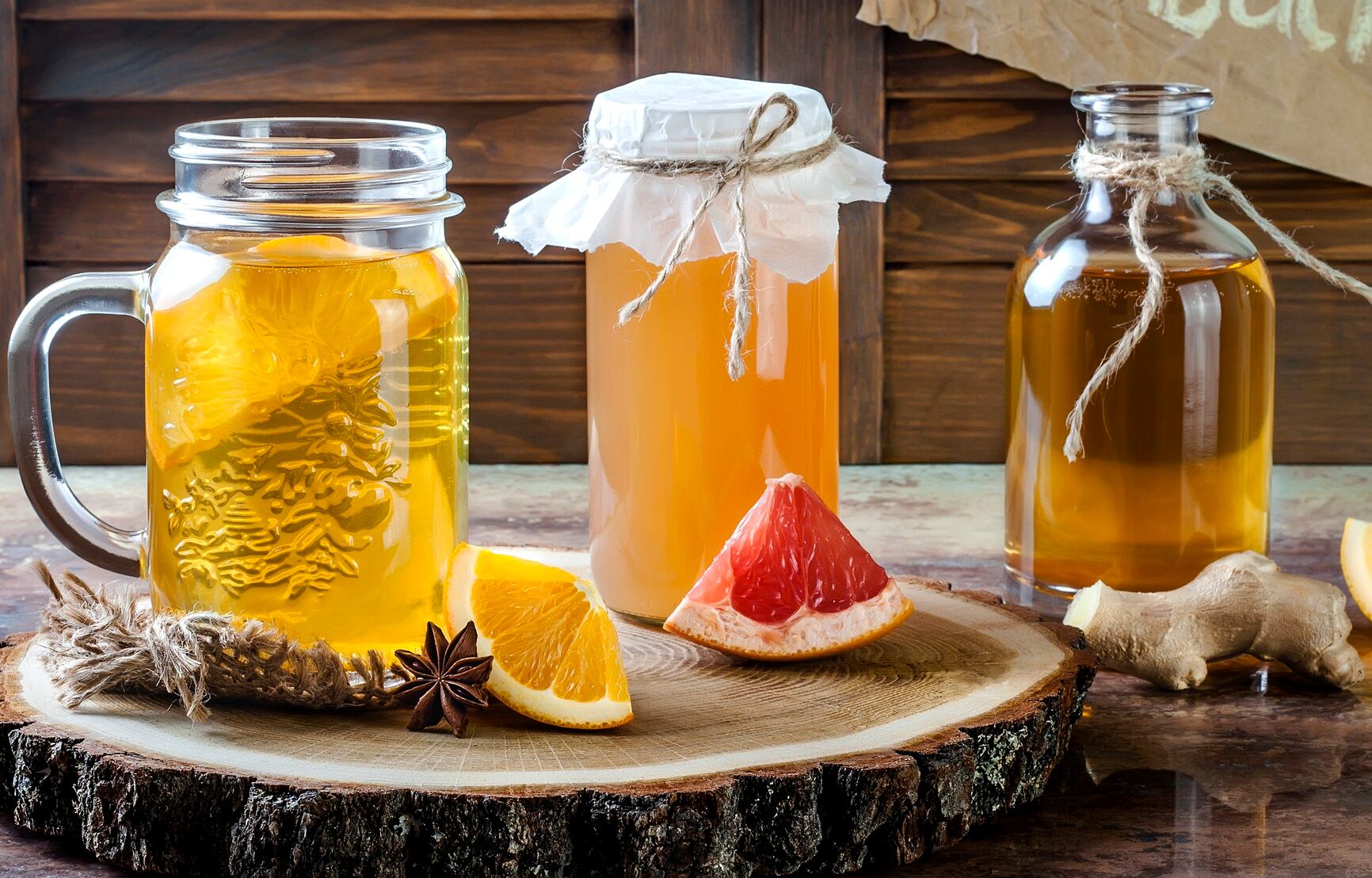Fermented food and drinks are growing in popularity as demand for healthier, more natural and inherently functional products increases. But with the slightly acidic tastes of ferments, such drinks can also offer consumers a whole new flavor profile.
Meanwhile, as concerns over sugar intake grow, beverage consumers are becoming more wary of overly sweet formulations, opening the ground for sour and bitter flavour notes.
‘Powerhouse of beneficial probiotics’
Fermentation is seeing a revival in today’s food and beverage category: offering products that are ‘powerhouses of beneficial probiotics and friendly bacteria’ that support digestive health, according to Mintel.
The European market, for example, has seen an impressive rise in fermented beverage introductions: over the past five years, the share of fermented soft drinks launches (including CSDs and other hybrid formats) has more than doubled.
“Fermentation allows for processing ‘the natural way’ and can be considered a counter trend to artificial carbonated soft drinks which are dominating the market,” said Julie Buech, global food and drink analyst at Mintel.
“Recognized for its unique health and taste credentials, fermentation is used as a quality indicator in a range of soft drinks targeted at adults, from traditional malt drinks to "living" lemonades, sparkling kombucha tea and other emerging formats.”
Digestive health is the top reason for the consumption of functional foods and drinks (cited as the motivation for purchase by 49% of consumers in Germany, 48% in Spain, 46% in Poland, 38% in Italy and 33% in France).
But while the functionality may be the main reason people purchase fermented drinks, the popularity of the category is also opening up a new profile of flavors, with an inherently sour, tart or bitter dimension.
And flavors are developed further by the combination with other trendy ingredients – from ever-popular berries and popular citrus notes through to newer functional ingredients such as turmeric and ginger.
Kombucha
Product spotlight: Brew Dr Kombucha Citrus Hops
'This unique recipe employs white tea leaves and two types of NW hops. The resulting brew is deliciously light, crisp and refreshing.'
25 calories per 7oz serve; also contains cane sugar, oranges, coriander. USDA organic certified; gluten-free and non-GMO.
Kombucha is the biggest star among fermented soft drinks, says Mintel, accounting for 21% of total fermented soft drinks in Europe between October 2016 and September 2017 – up 9% from two years previously.
"Kombucha has been consumed for thousands of years in Asia," said Buech.
"Known locally as an 'immortal health elixir', the fermented, probiotic tea drink is becoming increasingly popular in the West, where it is marketed as a healthy alternative to artificial soft drinks.
"Often described as energizing and 'full of life', the naturally sparkling drink continues to fuel fermented drinks innovation."
Flavors within the kombucha category can vary greatly: from sweeter varieties to tarter, sour products.
Kefir water
Following in the footsteps of kombucha, sparkling water kefir is emerging in the market.
Product spotlight: Lemon & Ginger Kefir Zing from My Living Water UK
'Our zesty lemon & ginger first smacks your lips with a fiery shot of ginger. Then come the citrus lemony notes to mellow closely followed by a deeper, muskier ginger finish.'
Dairy and gluten free, 17 calories per bottle, suitable for vegans.
Similar to its more well-known dairy kefir counterpart, water kefir is a fermented drink teeming with beneficial probiotic bacteria. It is made by adding special water kefir grains to liquids including water, coconut water, or fruit infusions.
"Compared to kombucha, water kefir is said to offer a milder and naturally sweeter taste," said Buech.
Switchel
Switchel is traditionally made with water, cider vinegar, ginger, lemon and maple syrup. It was popular in colonial America where it was frequently drunk by farmers to keep them energized and hydrated while working in the hot hayfields.
In the US, the long-forgotten drink concept has been making a comeback in the last few years: with brands such as Up Mountain Switchel and CideRoad.
CideRoad blueberry switchel
70 calories per 8 fl oz serve; certified organic ingredients, 14% juice.
Focusing on hydration and refreshment, switchel features a range of wellness-promoting ingredients. The most distinct ingredient, vinegar, is said to help improve digestion, lower blood sugar, and 'detox' the body. Interest in juices with functional benefits is strongly driven by younger consumers.
“Like kombucha, intense-tasting switchel is both tart and sweet,” said Buech. “While the unusual taste might take some getting used to, it plays into the millennial quest for experimental and adventurous flavors.”

